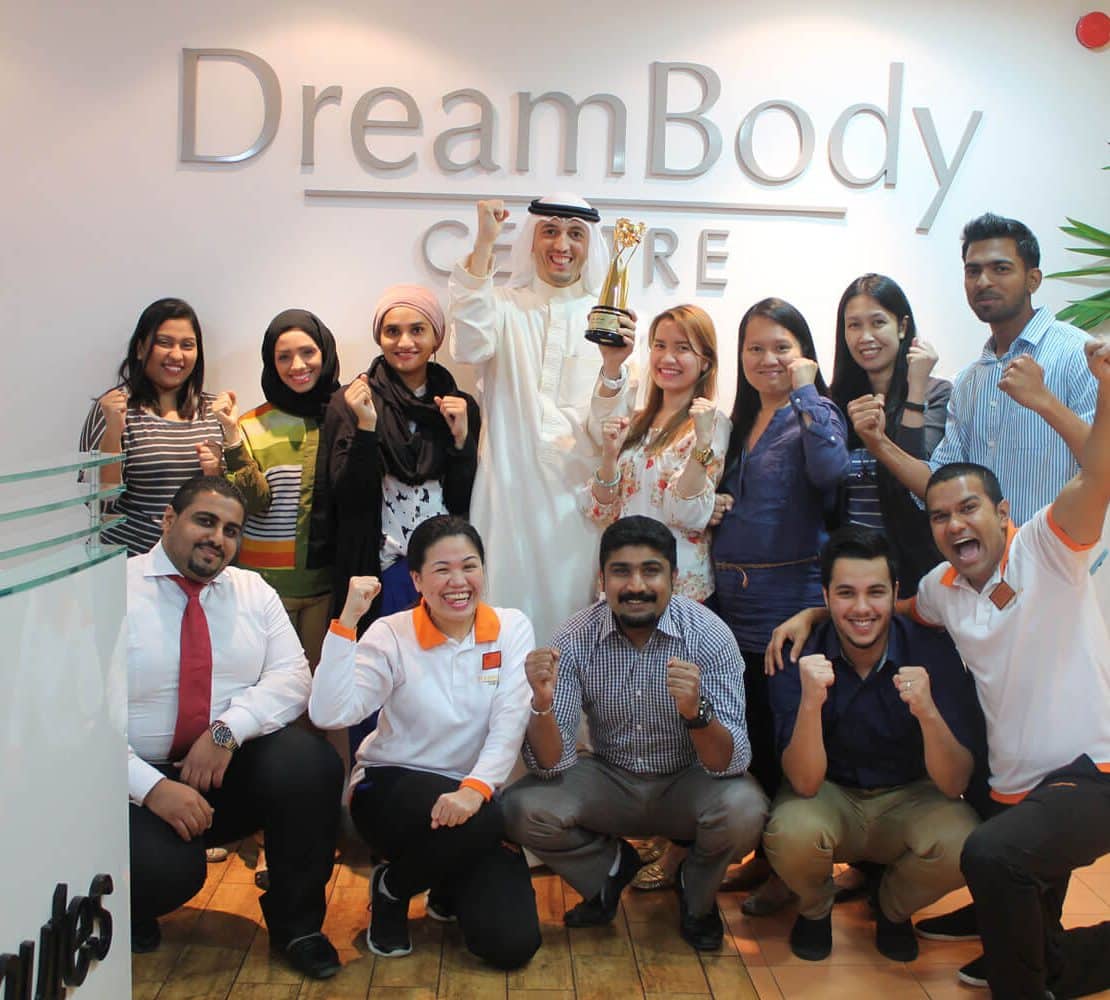People will always talk—but that shouldn’t matter. Grieve, process, rebuild…and then get on with the biggest success of your life.
Thank you for this opportunity. It’s an absolute pleasure to meet with you. Can you tell us about what’s happened recently, for those who don’t know?
I am Suhail Algosaibi, a serial entrepreneur, startup investor, mentor, author, marketer, consultant, and a speaker. I’m the founder and CEO of FALAK Consultancy and the founder of the Dreambody Centre, the world’s only 23-minute body transformation center for women where we develop a customised weight loss programme just for you. Circumstances have forced us to close our business, the DreamBody Centre, in Bahrain. It was a painful process, but it had to be done. Once you close a business, you need to go through the process of grieving. Then you realize you’re still alive, and you can get on with your life.
What was the most painful part of closing down the business?
For me, it was definitely the breaking up of the team. We had established a wonderful, wonderful team, and senior leadership had been with me for about eight years—since day one. The brand, which we had built up for so long—that wasn’t easy to let go. The money I lost was obviously very painful, as well. The least painful thing was worrying about what people would say.
Were you hesitant to talk about this?
No. It took me by surprise by how supportive and encouraging people were. It helped in the process of healing and closure. I have a lot of gratitude for those who showed their support. I really, really appreciated it.
Why do you think people in Bahrain fear failure so much? Do we feel it more than others?
I suspect that we do, in Arab culture. You have to remember that the word failure is negative. If you think about it, we’ve been failing all our lives—just not calling it failure. As a father, when I saw my children learning to walk, I saw that the falls during the process were actually not failures. They were a feedback mechanism for self-correction. At some point in life, we stop realizing this, and we start being afraid of failure.
Why do you think people don’t like talking about failure?
It’s the shame and fear of what others will say. Success attracts criticism. If you work hard and try to succeed, someone will say, “Who does this guy think he is? Look at him. He thinks he’s better than us.” If you decide to stay at home and do nothing so you don’t get criticized, people will say, “Well, look at him, he’s staying at home, doing nothing. What a loser.”
If you were to teach one thing you gained from this journey, what would it be?
Don’t worry what others think. Ask yourself, What are the outcomes for me? Look, you only have one life. That’s it. You don’t want to be 90 years old and say to yourself, “I wish I had done that. I should have. Why didn’t I?” It’s about your happiness, at the end of the day.
At what point did you realize, this needs to be shut down?
The numbers don’t lie. You’ve got to have your metrics and KPIs. You can only push a business on hope and faith for so long until you make that call. We realized it just wasn’t sustainable.
DON’T ALLOW YOURSELF TO ACT OR THINK LIKE A VICTIM. DON’T LET IT SHAPE YOU. EVEN YOUR DEPRESSION SHOULD BE TIMED.
The day after you shut down is not a regular day anymore. What was that day like for you?
It was very bad. It was a very depressing period in my life. The next day, and the next week also, were actually very hard. I think it’s important to allow yourself to wallow in your depression. It’s okay to be upset. When something bad happens to you, it’s always for a reason. Almighty God has His plan. If He closes the door, He opens a window.
Don’t allow yourself to act or think like a victim. Don’t let it shape you. Even your depression should be timed. I went through every entrepreneur’s worst fear: closing down my business. It made me stronger because it was my worst fear.
Why do you think things didn’t work out?
Mainly, we think it was the economy. We think that the Bahraini consumer, because of the higher cost of living, just cannot afford this discretionary spending anymore. We’re a luxury that few people in Bahrain can or want to afford. That’s the reality of life.
Okay, that makes a lot of sense.
Having said that, under no circumstances am I blaming anybody else. This is something I chose to do, and I have no regrets. It was a wonderful, wonderful experience, and I consider it a temporary pause until we re-launch. I think having the right attitude about these kind of things is supremely important.
What’s next for you?
We want to launch DreamBody Centre 2.0 in the Eastern Province. We’re thinking of opening two to three locations, then decide if we should go back to the franchising model or do it all ourselves.
Have you given yourself a time frame?
I think within 18 months, if it doesn’t work, the writing will be clear. I’m also CEO of my management consultancy, and there’s a lot of work that needs to be done there. I’m always in a state of flux, and I wouldn’t have it any other way. Any spare entrepreneurial energy I have goes into angel investing and mentorship. I want to make the world a healthier, happier place.
Excellent. Thank you for this opportunity once again.
Thank you.

